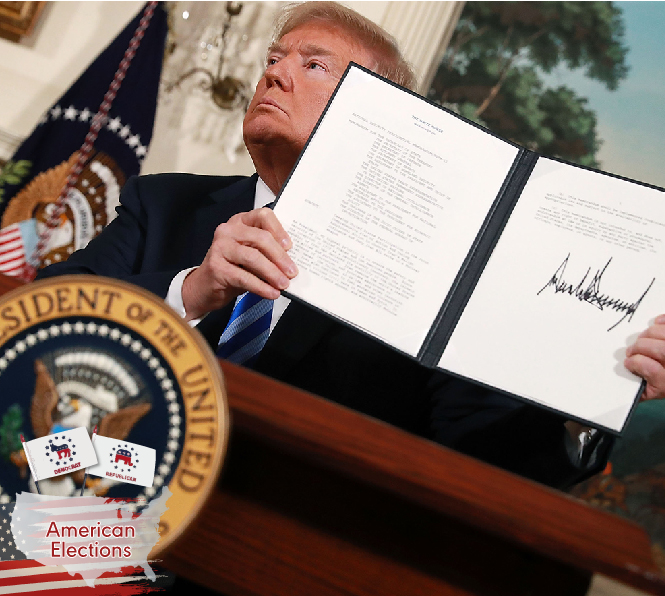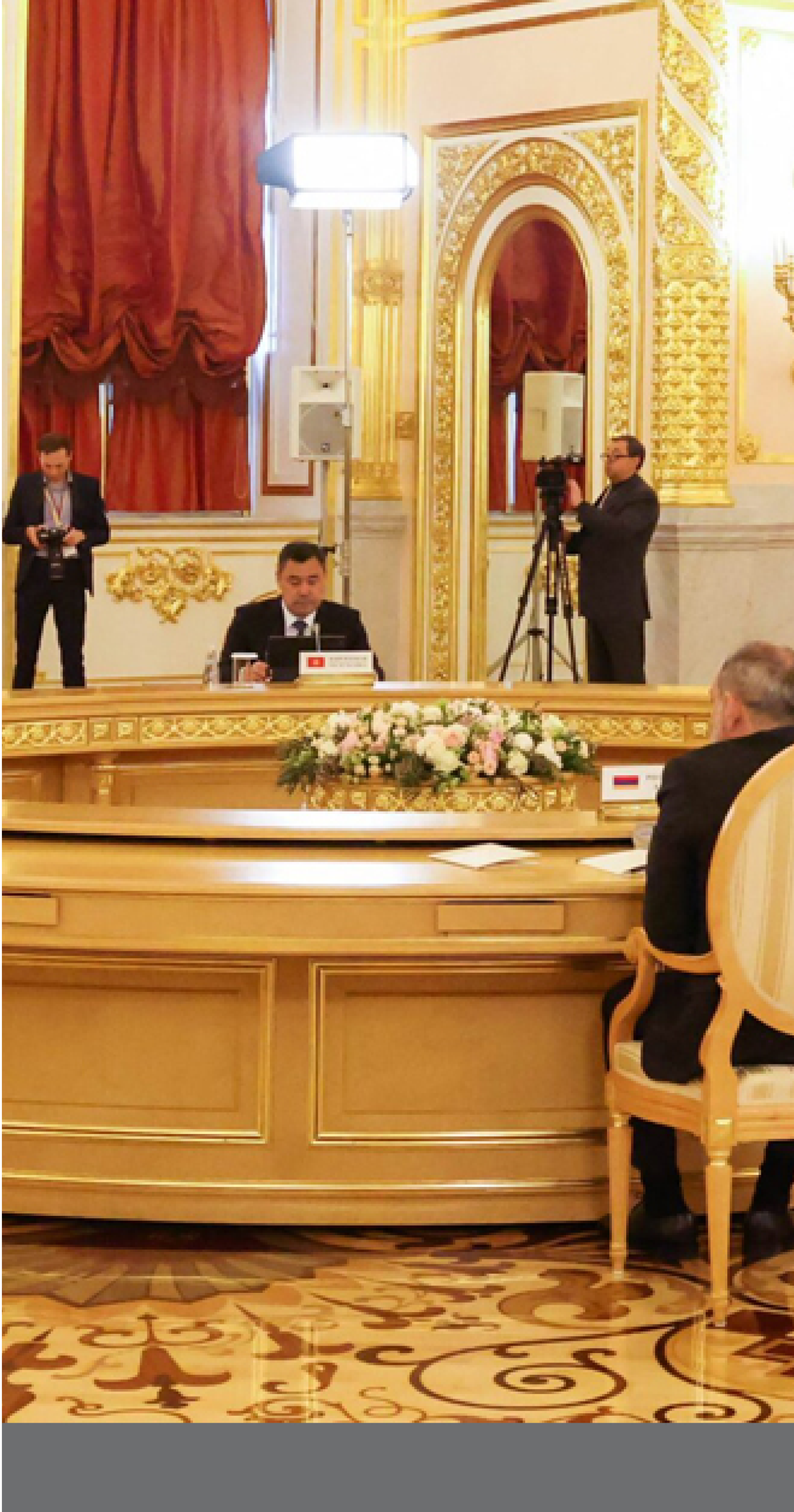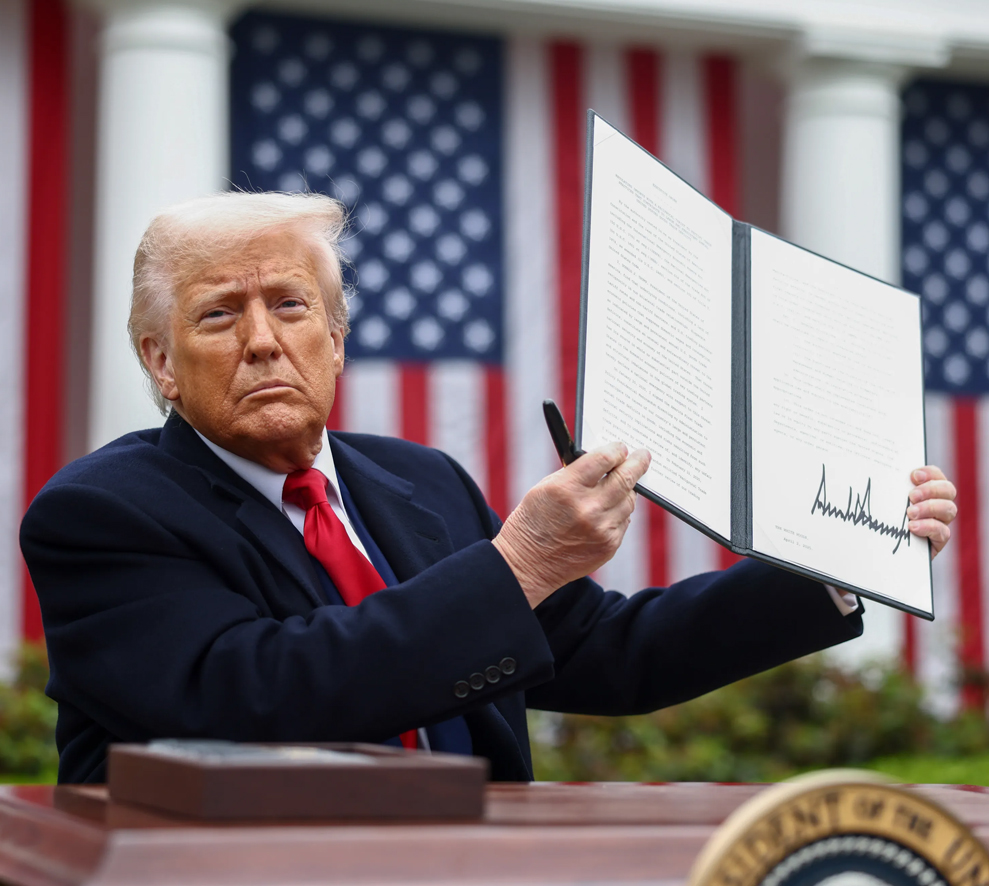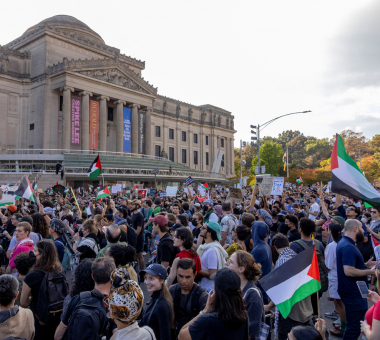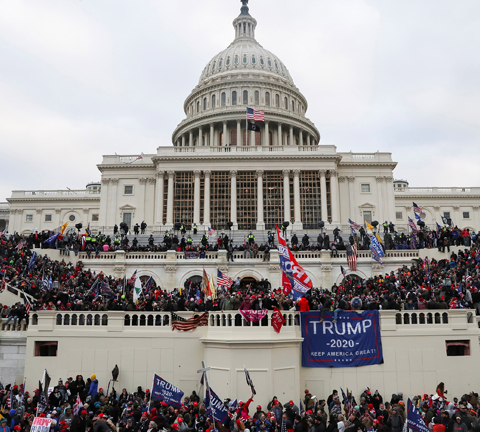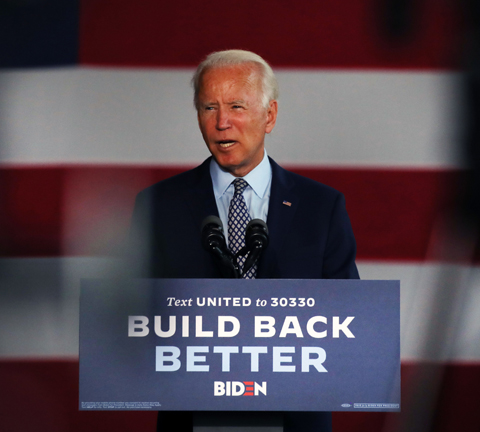* This is the fourth article in a set of articles and papers published successively, discussing certain aspects of the internal and foreign dimensions of the upcoming US elections.
In the past four years, the administration of US President, Donald Trump, has pursued the policy of sanctions as a tool to achieve US foreign policy goals and relevant US higher interests. Thus, presidential decrees and legislative decisions were adopted for the sake of affecting the capabilities of economic entities and governments that Washington classifies as hostile or challenging US influence.
The stated goals of these sanctions range from bringing about radical changes in the behavior of a country's political system, such as the sanctions of maximum pressure against Iran, to imposing sanctions on commercial companies involved in projects that contradict with the American vision in some issues, such as the partially imposed US sanctions, until October 2020, on European companies active in developing projects of transport of Russian gas to Europe through pipelines passing through Turkey and Germany.
Washington turned to the policy of economic pressures after the global war on terrorism that began following the attacks of September 11, 2001. It is the phase that inflicted the American state enormous human, economic and military costs, not to mention that it draw Washington’s attention from more serious threats that come from countries such as China and Russia, which the National Security Strategy currently classifies as the most prominent threats to US vital interests.
In light of these costs and the unfeasibility of a military solution in the gray-zone conflicts, the American decision-making system considers resorting to sanctions as a half way between an exorbitant military intervention and taking no effective action towards a controversial issue. The expansion in imposing sanctions resulted in negative repercussions on the durability of Washington's strategic position in the international arena. These repercussions can be summarized as follows:
First: Lack of international momentum
In August 2020, the Security Council rejected a draft resolution submitted by the US to extend the arms embargo imposed on Iran. The US diplomacy did not succeed in re-activating the Security Council sanctions according to UN Resolution no. 2231 which included the Joint Comprehensive Action Plan known as the nuclear deal.
This agreement suffered a setback after the US announced its withdrawal in May 2018 and imposed unprecedented comprehensive "unilateral" sanctions that prevent Iran's strategic sectors from dealing with external partners. These sanctions extend to include any government or company that violates the US sanctions, the matter which put the European parties of the Joint Plan of Action in a dilemma between balancing the obligations of the nuclear agreement with Tehran on the one hand, or being subject to US sanctions on the other. Despite this, the nuclear agreement continued to enjoy international legitimacy, yet without a practical cover for its implementation.
This legitimacy was demonstrated when the US demanded to re-impose sanctions against Iran on an international scale; as 11 countries abstained from voting, including the European permanent members of the Security Council, the UK, and France, while China and Russia opposed the draft resolution, whereas only the US and the Dominican Republic voted for it.
The three European -the two permanent members and Germany- countries not only abstained from voting, but rather argued in a joint statement that Washington could not activate the snapback mechanism that re-imposes sanctions on Iran under Resolution no. 2231; because Washington had earlier announced its withdrawal from it. It is noted that many of the recently approved sanctions are regarded unilateral sanctions, rather than multilateral sanctions imposed in partnership with allies or through relevant institutions such as the Security Council.
Donald Trump administration has not excluded the allies from imposing sanctions and raising tariffs, which come within an unstable course that would make such adjustment into sanctions rather than an administrative customs measure. Therefore, it is not surprising that the international support for the US sanctions policy has decreased; because many of these allies have been subjected to "economic sanctions", either directly or indirectly. Likewise, the American political justifications for the imposed sanctions are no longer convincing for the allied governments to be motivated to support US sanctions.
Second: Developing new economic methods away from the current international economic system
The US approval is not enough for a package of sanctions to be implemented; but still, tools and mechanisms are needed to control the compliance of governments and companies around the world and monitor potential violations taking appropriate action at a decisive time.
Among the most important of these tools and mechanisms that support US sanctions is the Financial Action Task Force which was established as an intergovernmental organization in 1989 on the sidelines of the G7 summit held in Paris in the same year. Its goal was to adopt and implement measures aimed at combating money laundering, terrorist financing and other prohibited activities, and to make occasionally binding recommendations in order to ensure that the banking system is not exploited in illegal operations.
Due to the internationalization of some of the US sanctions and the multiplicity of countries involved in the FATF, the latter exercises a form of monitoring on the compliance with sanctions, as central banks share information on suspicious transfers that violate sanctions as well as information related to terrorist financing and money laundering.
The second tool that supports the US sanctions is the Society for Worldwide Interbank Financial Telecommunication (SWIFT), established in 1973 in Brussels which hosts a number of European Union institutions. According to the data published on its website, it currently includes about 11,000 banks and monetary institutions in more than 200 countries around the world, which means that it covers almost all countries of the world. It is based on playing a safe and fast intermediary role for international bank transfers, whereby transactions are exchanged between members through a special code for each transaction without the need for an actual financial transfer.
It is evident from the function of the SWIFT system that it provides accurate access to the data of bank transactions, allowing the identification of the starting and ending points of financial transactions. The US Treasury Department stresses the need for the system to comply with sanctions and reject any suspicious operation. Definitely, SWIFT system does not risk violating US sanctions so that it, in turn, will not be subjected to sanctions that limit its ability to deal in dollars; as its daily exchange run in US dollar ranges between $5-6 trillion.
It is difficult to evade the two aforementioned monitoring tools, FATF and SWIFT. Therefore, the countries targeted by the sanctions were forced to search for alternatives to run their financial transactions without risking the disclosure of transactions to the American monetary system.
One of these emerging alternatives is the Chinese version of SWIFT issued by the People's Bank of China called the Cross-border Interbank Payment System. This system, which was launched in 2015, is still far from competing with SWIFT, as the number of its financial institutions members is nearly 980 distributed over 96 countries and administrative regions, according to a report published by Reuters in July 2020. The volume of daily financial operations run through this system is approximately 135.7 billion Yuan - equivalent to $ 19.4 billion.
China has also launched this year pilot tests of the digital yuan issued by the People's Bank of China. It is expected that governments and companies, which fear being subjected to US sanctions, will increasingly turn towards these emerging parallel bodies. If the policy of sanctions is extended and prolonged, the increasing reliance on these alternatives will undermine the international economic system with its dollar-based and US-run version, since the need to face US pressure is the "mother" of the affected countries' invention of new means and mechanisms to avoid using monetary tools subject to the supervision of American institutions, such as the US Department of the Treasury and the Federal Reserve Board.
Third: Realizing political "counter-goals”
Economically speaking, the US sanctions have succeeded in causing widespread damage, including the decline in oil exports and unprecedented record lows of inflation rates and currency exchange rates, as in the Venezuelan and Iranian cases. It also limited the penetration of targeted entities and personalities into the international banking system in a way that impedes the ability to complete various transactions.
However, these negative economic effects are not an end in themselves, but rather a means to achieve specific political and strategic goals. The sanctions are designed to create deteriorating socioeconomic conditions that push governments to make concessions consistent with the American vision as the only way to prevent a social security breakdown in the form of a popular uprising.
Indeed, some waves of protests did occur as a result of the economic conditions brought about by the sanctions. However, the states apparatus were able to contain, control, and even take advantage of the situation in directing a propaganda speech to the people calling for steadfastness in the face of the "American campaign" that targets the pillars of the state, thus enhancing national unity and social cohesion.
These local conditions have reinforced the presence and power of what Washington politically classifies as extremists in the sanctioned countries, as the anti-American narrative is gaining popular appeal as a spontaneous psychological response to external threats.
For example, the fundamentalist current lists that include leaders of the Iranian Revolutionary Guards Corps achieved clear success in the legislative elections that were held in February 2020, as they won 221 seats out of 290. In Venezuela, the opposition, which is relatively dominant in the legislative power, failed in overthrowing the regime, despite the imposition of severe sanctions that have reduced the country's oil exports. The Venezuelan people with a left-wing socialist culture were not led behind the calls of the US-backed opposition, and the Venezuelan leadership succeeded in absorbing the anti-movements and consolidating its ideological authority in a way that recalls the successes of the former Cuban president, Fidel Castro, who took over power in 1959 and continued to "struggle" before his people against sanctions and US schemes for long periods of his rule that lasted until 2006.
In addition to political repercussions, sanctions may cause geopolitical security repercussions. After tightening sanctions on Iran in mid-2019, several explosions occurred targeting oil tankers around the Strait of Hormuz, let alone targeting American interests in Iraq, and the Ansar Allah "Houthi" forces precise attacks on facilities that represent the backbone of Saudi oil production in Abqaiq and Khurais, in addition to a number of explosions against facilities in Iran or affiliated with its allies in Iraq. Some experts attribute these anonymous attacks to the desire of certain countries to export their crises and expand the scope of harm, as the popular saying goes, “let the temple fall upon all.”
The security backlash may include the sanctioned countries being forced to camouflage their commercial dealings by colluding with illegal actors such as terrorist groups and drug cartels, necessarily meaning the engagement in terrorist financing networks and prohibited activities, especially since technology facilitates jumping over many physical barriers; for hardly a month passes before security research centers release a report on a commercial activity that includes digital fraud - one of its parties is a country on the US sanctions list.
Fourth: Increasing the presence of Washington’s competitors in the international arena
The effectiveness of any sanctions depends on the compliance of states and international institutions and insuring no violation or facilitation of circumventing their provisions. The increasing imposition of US sanctions has coincided with an unprecedented tension between Beijing and Washington, the matter which made Beijing's dealings with the punished countries into a means of expressing rejection of US policies.
It is reported that China continues to buy “cheap” oil from Venezuela and Iran despite the imposed embargo. Indeed, Iran was forced to deepen its relations with China, signing, in July 2020, an agreement described as a strategic and comprehensive one as the only way to create economic opportunities after the US insisted on not accepting European-Iranian commercial exchanges.
With regard to the sanctions imposed on North Korea - which were approved by the UN Security Council in a draft resolution presented by the US delegate, Nikki Healy, in December 2017 - a statement issued by the Chinese Foreign Ministry spokesperson, Geng Chuang, in February 2018, announced that China, which accounts for over 90% of North Korea's trade, has "fully” implemented sanction measures.
Nevertheless, with the start of the "tariff war" in mid-2018 between Chinese and American exports, experts suggest a decline in Chinese political support for these sanctions, as a means of pressure on the US stance. From a practical point of view, North Korean provocations - such as conducting a missile test - distract the American attention and push a relatively minor file to the fore.
On a related level, the sanctions against China and Russia have moved their mutual relations closer to strategic horizons, making the two countries into establishing an alliance of "necessity" against American influence, as the bilateral military maneuvers increased, the commercial exchange enlarged, while conducted in their national currencies. This internationally-expanding tendency (conducting national transactions in a currency other than the US dollar) comes as a punitive measure parallel to the US sanctions.
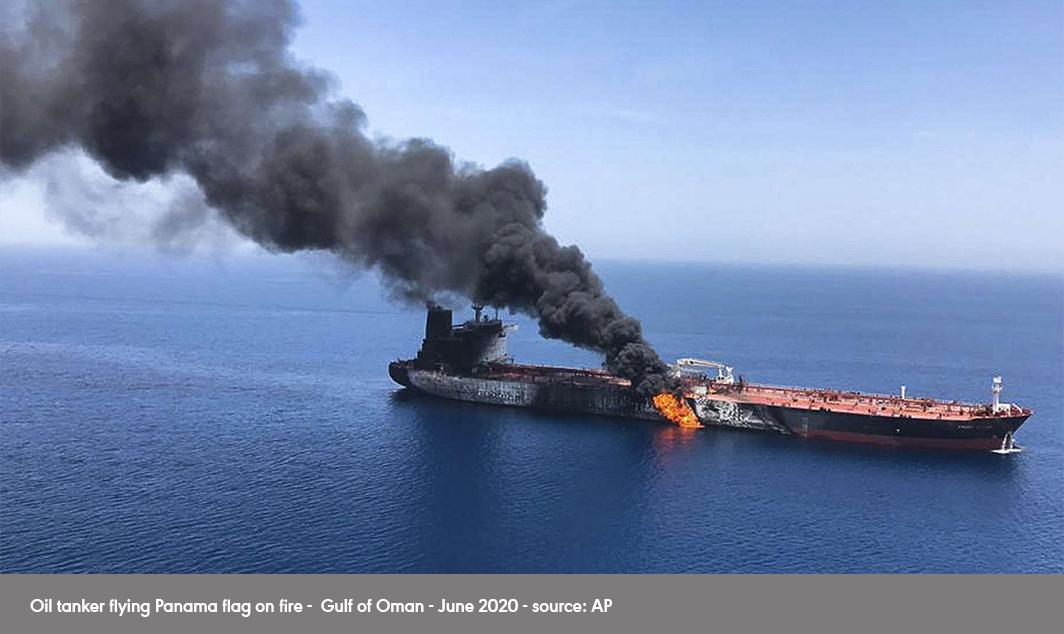
In the event of expanding and deepening alliance of necessity among the punished countries, Beijing would be forced to play political and security roles consistent with its new position, then it would not be able to rely solely on its economic capabilities to protect its vital interests. Rather, it would need to give a security, military and political character to its presence on the international scene in order to support these interests which have been expanded through the resort of countries subject to sanctions to Beijing as an emergency exit.
Independent policy or comprehensive strategy?
It is unlikely that sanctions alone can achieve the goals of US foreign policy unless they are concerted within the framework of a comprehensive strategy that includes attractive incentives to induce the punished party to the negotiating table; and more, this strategy must include raising the security and military costs incurred by the punished party for its intransigence in its positions.
It would be wrong for Washington to count on the economic cost for changing the strategic calculations of its rivals. Usually, states adapt to sanctions and devise new methods to circumvent American censorship, thus it becomes very difficult to monitor and track all potential violations.
This is not to underestimate the role of the economy in strategic considerations. Most international relations experts classify economic sanctions as a hard power that also includes military operations, but some classical realists are reluctant to classify economic sanctions as an independent tool of hard power.
Away from theoretical arguments and whether sanctions are a hard or soft power, achieving strategic goals in a complex environment requires a combination of tools and means. It does not matter whether the power is soft or hard; rather, what is important is that it is an intelligent power that employs "carrot and stick" according to accurate rational considerations.
At this point, some observers argue that Washington no longer has enough "carrots" after the rising powers, most notably China, seized international economic gains. For it seems that the US strategic reserve is far from being filled with benefits that can be offered to entice states into favorable positions, the Washington used to do it before.
Therefore, it can be said that the current sanctions differ from previous sanctions imposed by the US on countries opposing its policies. In the past, Washington had the luxury of options and the abundance of alternatives, but now the sanctions policy may reflect the decline of the decision-making system's ability to generate opportunities and exert "flexible" pressure on other countries.
Accordingly, the evaluation of the feasibility of sanctions policy falls under the category of the determined. It is likely that most American assessments conclude that sanctions are ineffective in extracting the vital interests for which they were approved in the first place. However, what should be discussed are the alternatives that must be devised to achieve foreign policy goals and meet national security requirements, with minimal losses and / or maximal gains, and without overburdening US diplomacy in justifying unilateral sanctions that do not always help in settling disputed issues but may rather complicate the situation.
Policy uncertainty
Foreign policy is an important factor in determining the voting choice of the American electorate. In a survey conducted by PEW Research Center in August 2020, 57% of respondents considered foreign policy to be an issue that plays a role in guiding their voting decisions.
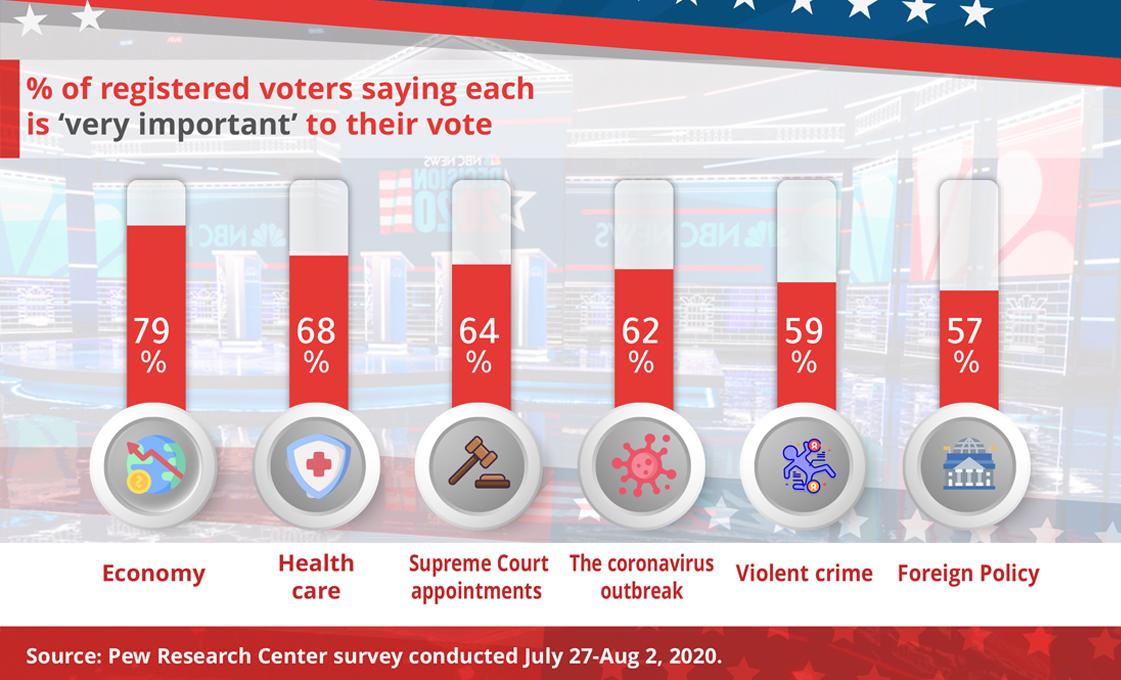
Therefore, sanction policy was not far from the electoral push and pull, just like any other issue, between a "Republican" who sees it serving the vital interests of the United States of America, and a "Democrat" who views it as deficient in meeting the goals of American foreign policy.
Administration officials were not immune to this controversy. In a speech delivered on the sidelines of his participation in the ASPEN security forum, National Security Adviser, Robert O'Brien, revealed that the policy of maximum pressure against Iran will continue if Trump is re-elected for a second term, implicitly warning against a case of a new administration that might terminate these sanctions - an action most favored by Tehran, as he puts it.
What is remarkable about these statements is their timing - less than a month before the presidential elections- and the intrusion of the sovereign National Security Council in a partisan electoral affair against the background of one of the files it is managing.
Foreign policy decisions were usually made away from partisan debates, in order to preserve the accuracy of bureaucratic and technical procedures, and to prevent their politicization. However, the foreign policy tools in this stage change according to the dominant administration, taking into account the institutional restrictions and considerations. Trump administration withdrew from the nuclear agreement signed with Tehran in the presidential term of his predecessor, Obama, and likewise Biden might withdraw from sanctions in case he is elected president and open up to Tehran.
This "fluctuation" applies to many sanctions and files, the matter which is contrary to the requirements of sound strategy that requires stability and balance in the medium term. If this fluctuation continues in foreign policy and the attitude towards the use of sanctions as a tool, then the opponents of the United States will breathe a sigh of relief with each presidential change.
Keep in touch
In-depth analyses delivered weekly.








